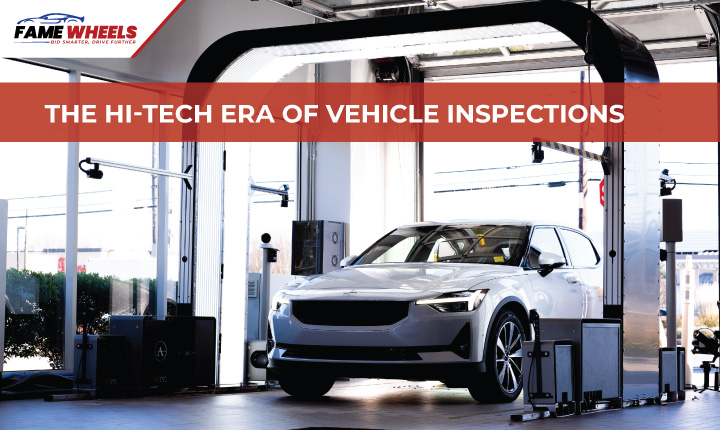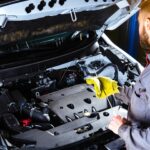We are currently in a new era of innovation where both hardware and software are growing rapidly. As Artificial Intelligence gets smarter, manual efforts are slowly becoming a thing of the past. Along with this, manufacturers are spending a lot of time on research and development to make vehicle hardware even more efficient.
This new-age hardware and software put together will unlock a whole new world of opportunities for using vehicle inspection tech skillfully. Famewheels Car Inspection leverages AI-powered technology for faster, more accurate vehicle assessments. It won’t be very long before we start seeing newer innovations that make car inspections a lot more efficient.
Some of these innovations include –
Predictive maintenance systems
Using smart hardware and AI to assess a vehicle’s performance and prevent potential vehicle damage in the future.
Autonomous inspection systems
That can run fully automated diagnosis without any human intervention.
New block-chain tech
For transparent data keeping and reduced risk of fraud.
Drone-based inspections
That can run 360° scans of your vehicle.
New-age sensors
That came built into the car.
Vibration and stress sensors
That reads vehicle patterns to alert the user in case of irregularities.
Capacitive and inductive sensors
Using electric and magnetic fields to read fluid levels and track engine functions.
Thermal and infrared sensors
Tracking engine and exhaust temperatures.
Optical and fiber optic sensors
To read the internal functioning of vehicles.
Conclusion
The vehicle inspection industry has come a long way – evolving from manual processes to advanced AI-powered solutions.
Each decade has brought innovations that have improved the speed, accuracy, and efficiency of inspections, with the 2020’s making a significant leap thanks to AI, smart sensors, and real-time data processing.
However, these models can further improve, specifically in areas like detecting non-visual damage, or increased data transparency.
The future already looks promising with tech like Predictive maintenance systems, autonomous inspections, and many advanced sensors making car inspections more reliable and accessible.
The next wave of innovation will continue to build on this foundation laid by current advancements, making the vehicle inspection process smoother and more precise than ever before.








